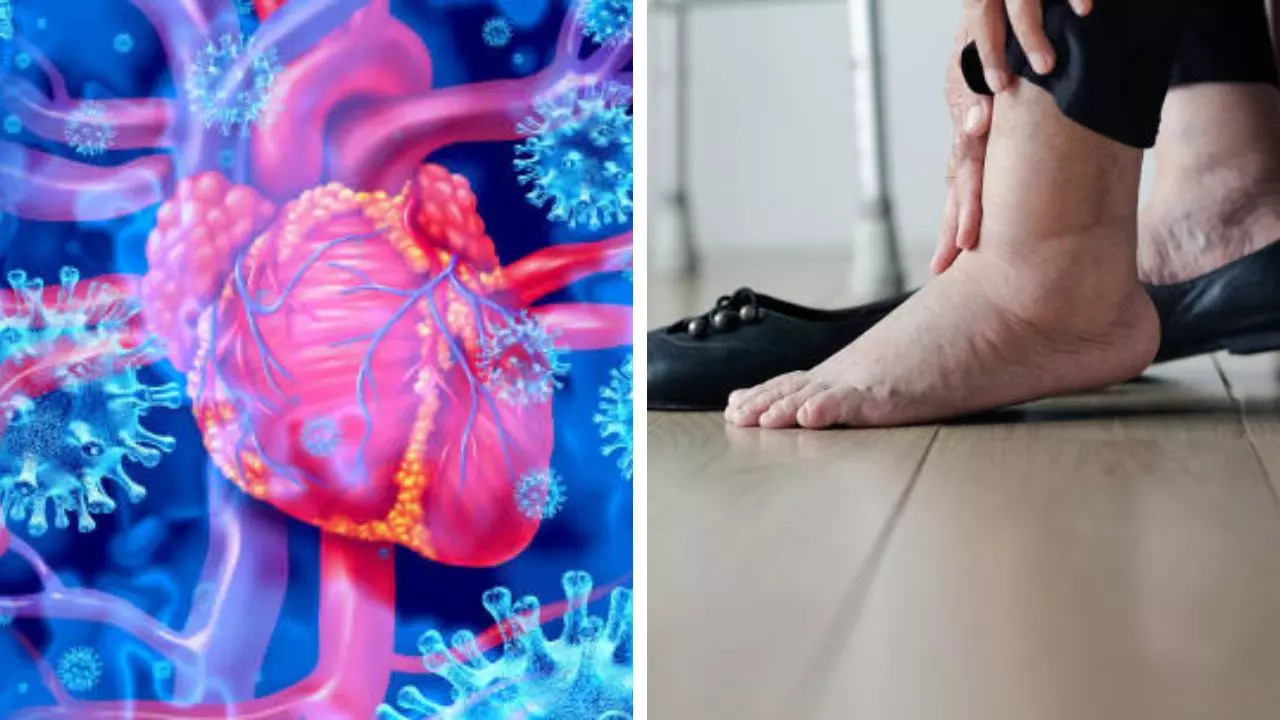Myocarditis causes inflammation of the heart muscle, which weakens and makes it difficult for the heart to pump properly.
In the summer, many people notice that their hands, ankles and feet start to swell a little more than usual. Although most of the time it is not a cause for concern, many experts believe it may be a sign of myocarditis, a disease that kills one young person every week in the UK.
According to a report by The Sun last month, Andy Jansons, chairman of the charity Myocarditis UK, whose son Alexander died from the condition aged 18, said: “It’s really important to be aware of the symptoms and know that it’s OK to seek medical help if you’re experiencing them.”
What is myocarditis?
The Cleveland Clinic says myocarditis is inflammation of the heart muscle, which weakens and makes it difficult for the heart to pump properly. This rare condition affects people quickly or slowly over time. Doctors say myocarditis is different from other types of inflammation because each type occurs in a different part of the heart.
According to statistics, around 1.5 million cases of myocarditis occur worldwide each year, which means that between 10 and 20 people are affected per 100,000 inhabitants.
Signs and symptoms of myocarditis
In addition to swelling in the extremities, some other signs and symptoms of myocarditis include:
- Shortness of breath
- Tiredness and fatigue
- Fever
- Chest pain
- Palpitations in the heart
- Pain in the abdomen
- Dizziness
- Abnormal heart rhythm
- Fainting
- Loss of appetite
- Swelling in legs and feet.
- Not being able to exercise
What causes myocarditis??
Doctors say myocarditis affects anyone at any age and is often linked to a recent viral infection, such as the flu or COVID-19. Even when the virus is gone, the immune system overreacts, causing inflammation that can persist in the heart.
Also, in rare cases, myocarditis has occurred in younger people who received the Pfizer-BioNTech or Moderna COVID-19 vaccines. Doctors say symptoms begin within the first week after receiving the vaccine. Most people who have this reaction to the COVID-19 vaccine recover quickly after treatment and can return to their usual activities when they feel better. Other causes include:
- Bacterial infection
- Fungus
- Chagas disease
- Rheumatic fever
- Autoimmune diseases such as rheumatoid arthritis or lupus.
- Things you are exposed to, like radiation or heavy metals.
According to doctors, early detection and treatment helps reduce the risk of long-term complications or death from the disease. With increased awareness, citizens are better informed to monitor their own health and ask the right questions to their GP if they are concerned.
Who is at risk for myocarditis?
Doctors say some of the things that put you at risk for myocarditis can’t be changed, and they include:
- Being a man
- Being young
- If you have inflammation, even if you do not inherit myocarditis, your genes influence how your body handles inflammation and your likelihood of developing the condition.
- You drink more alcohol than the limit assigned by your doctor
In addition, some medical treatments increase the risk of myocarditis, such as:
- Dialysis
- Implanted cardiac devices
- Radiation for cancer treatment
- Treatments for heart problems
Disclaimer:
The information contained in this post is for general information purposes only. We make no representations or warranties of any kind, express or implied, about the completeness, accuracy, reliability, suitability or availability with respect to the website or the information, products, services, or related graphics contained on the post for any purpose.
We respect the intellectual property rights of content creators. If you are the owner of any material featured on our website and have concerns about its use, please contact us. We are committed to addressing any copyright issues promptly and will remove any material within 2 days of receiving a request from the rightful owner.

